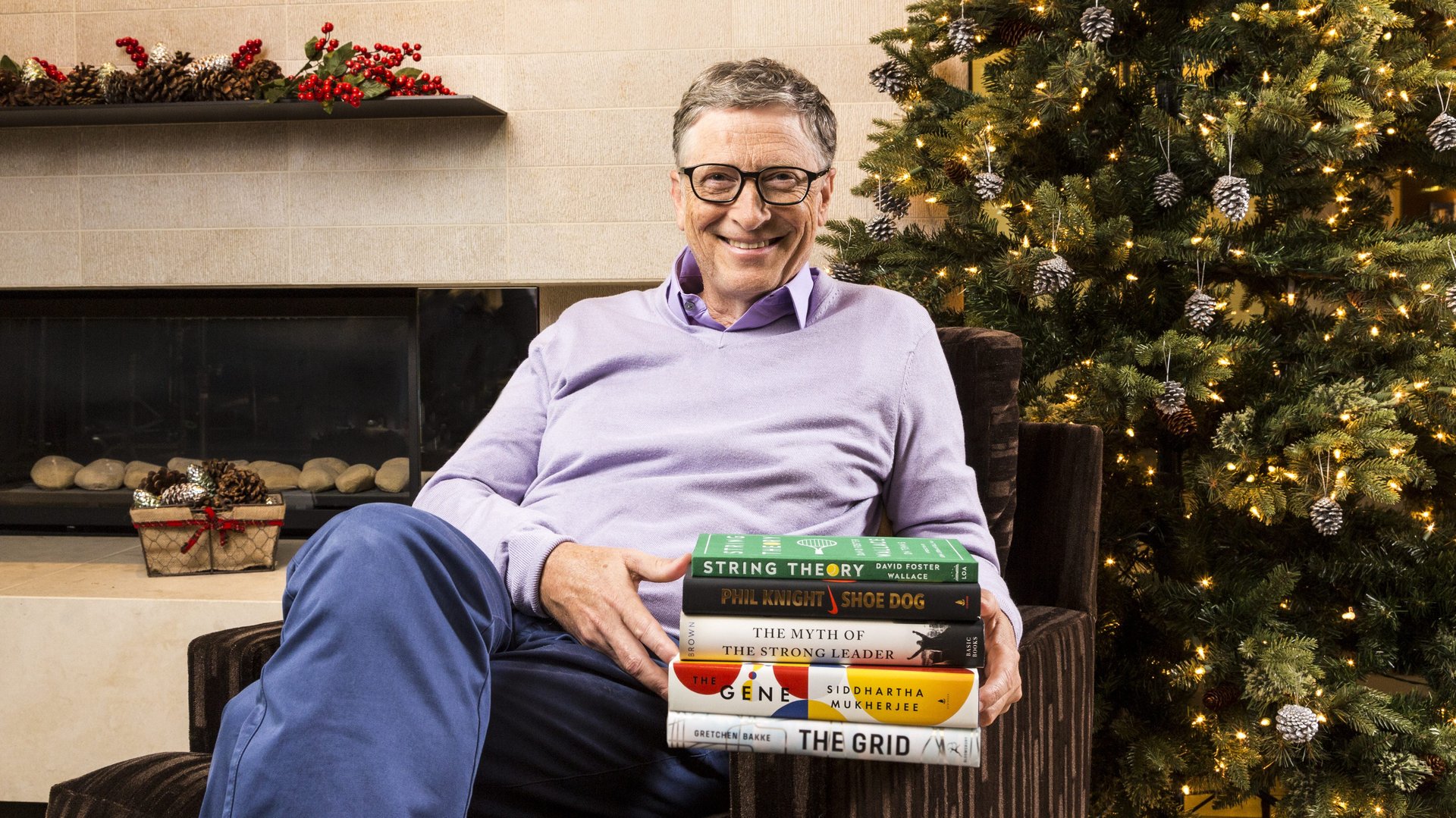These are the best books Bill Gates read in 2016
The world’s richest man is studying up on tennis and electrical grids this year.


The world’s richest man is studying up on tennis and electrical grids this year.
Bill Gates, philanthropist and cofounder of Microsoft, has kept up his reading and book reviewing. Today he released an annotated list of his favorite books from 2016. They include David Foster Wallace’s essays on tennis, and an argument for cooperative political leaders. Writes Gates, “They all dropped me down a rabbit hole of unexpected insights and pleasures.”
See the titles chosen this year by Gates, with some notes from the voracious reader:
String Theory
, by David Foster Wallace
Gates says he’s on a “big Wallace kick” right now. He jokes that the late writer’s collection of essays “will make you look super smart” on a train or plane, as you’ll appear to be reading about physics, even when you’re reading about tennis. Writes Gates:
As much as I loved the book for its insights on the game, I loved it just as much for the writing itself. I now understand why people talk about David Foster Wallace with the same kind of awe that tennis fans use to talk about a Roger Federer or Serena Williams. Wallace’s ability to use language is mind-blowing. He’s an artist who approaches a canvas with the exact same oil paints everyone before him has used and then applies them in breathtaking new and creative ways.
Gates says he’s on a “big Wallace kick” right now (though admits he still hasn’t gotten through Infinite Jest.)
Shoe Dog
, by Phil Knight
Phil Knight recalls how, newly out of business school, he borrowed $50 from his father to start the company that would become Nike. It’s an “honest reminder” of the messiness and mistakes required for success in business, Gates says, praising Knight for his vulnerability and frankness:
…Knight opens up in a way few CEOs are willing to do. He’s incredibly tough on himself and his failings. He doesn’t fit the mold of the bold, dashing entrepreneur. He’s shy, introverted, and often insecure. He’s given to nervous ticks –snapping rubber bands on his wrist and hugging himself when stressed in business negotiations.
The Myth of the Strong Leader
, by Archie Brown
Political scientist Archie Brown challenges the idea that those with the most dominant ways of speaking make good leaders, and puts forth an argument for cooperative figures of power. Writes Gates, “Brown could not have predicted how resonant his book would become in 2016.” He says:
Whereas most books about political leadership are chronologies, mapping the rise and fall of leaders over time, this one is more of a taxonomy. Brown takes a deep look at the traits and tendencies leaders exhibit, and the categories they fall into, as a way of understanding the egos, motivations, and behaviors responsible for so much progress, and so much suffering, in the world. Throughout, he presents a new way to think about today’s challenges – and the people we entrust with solving them.
The Gene: An Intimate History
, by Siddhartha Mukherjee
New genome-editing tools are technologically incredible and ethically flummoxing. Gates turns to oncologist Siddhartha Mukherjee’s book for a guide to the context of the gene. He writes of his favorite section, “Post-Genome: The Genetics of Fate and Future”:
Within 10 years, it will be possible for clinicians to use genome editing to help people with diseases caused by a single faulty gene, such as cystic fibrosis—an unquestionably ethical use of this new technology. But what about making the repair in egg or sperm cells to save people from developing these diseases later in life? This form of therapy could be highly effective, but it would mean that children born from these sperm or eggs would pass along their genetically modified genomes to their own children—altering the human germ line and crossing an ethical Rubicon.
The Grid: The Fraying Wires Between Americans and Our Energy Future
by Gretchen Bakke
Cultural anthropologist Gretchen Bakke reimagines the US’s electrical grid for contemporary values and with new energy sources in mind. Writes Gates:
Even if you have never given a moment’s thought to how electricity reaches your outlets, I think this book would convince you that the electrical grid is one of the greatest engineering wonders of the modern world. I think you would also come to see why modernizing the grid is so complex and so critical for building our clean-energy future.